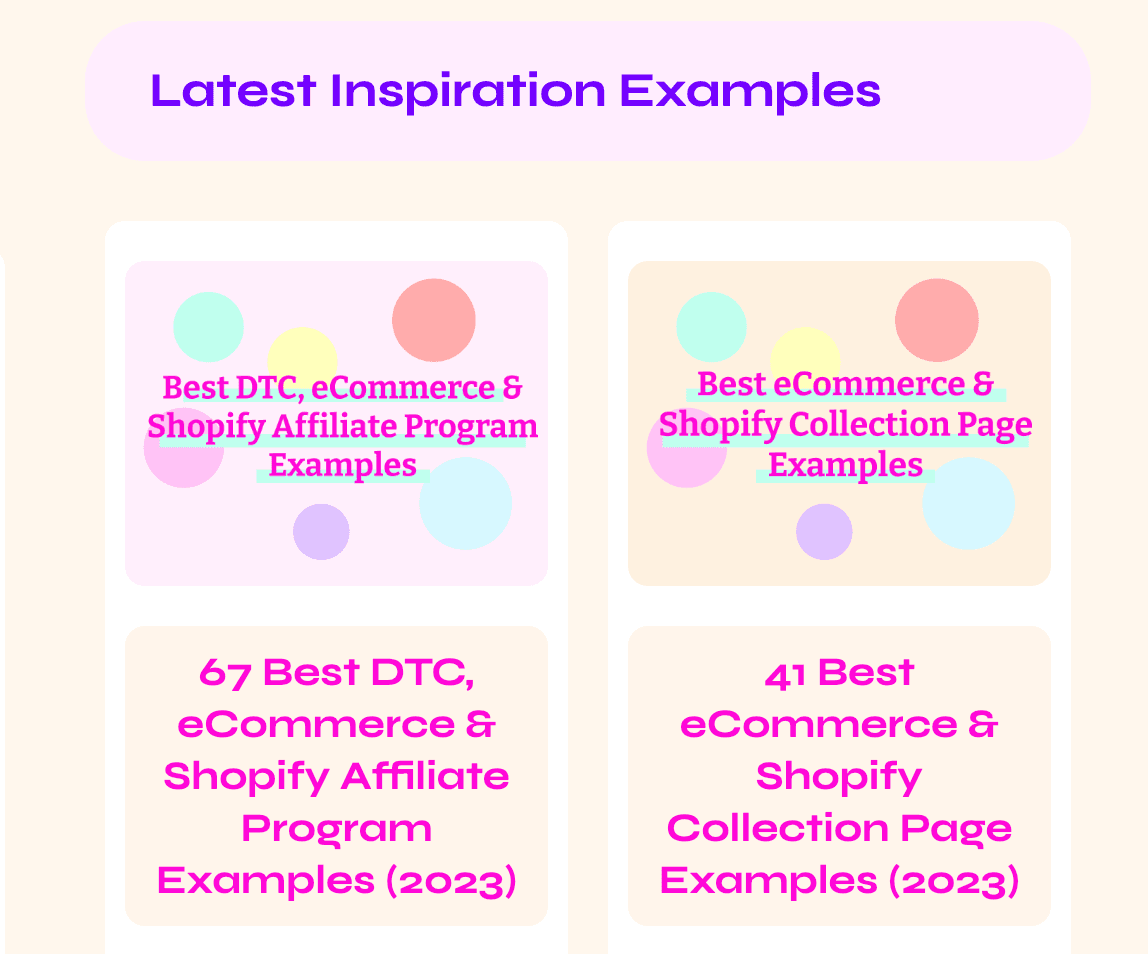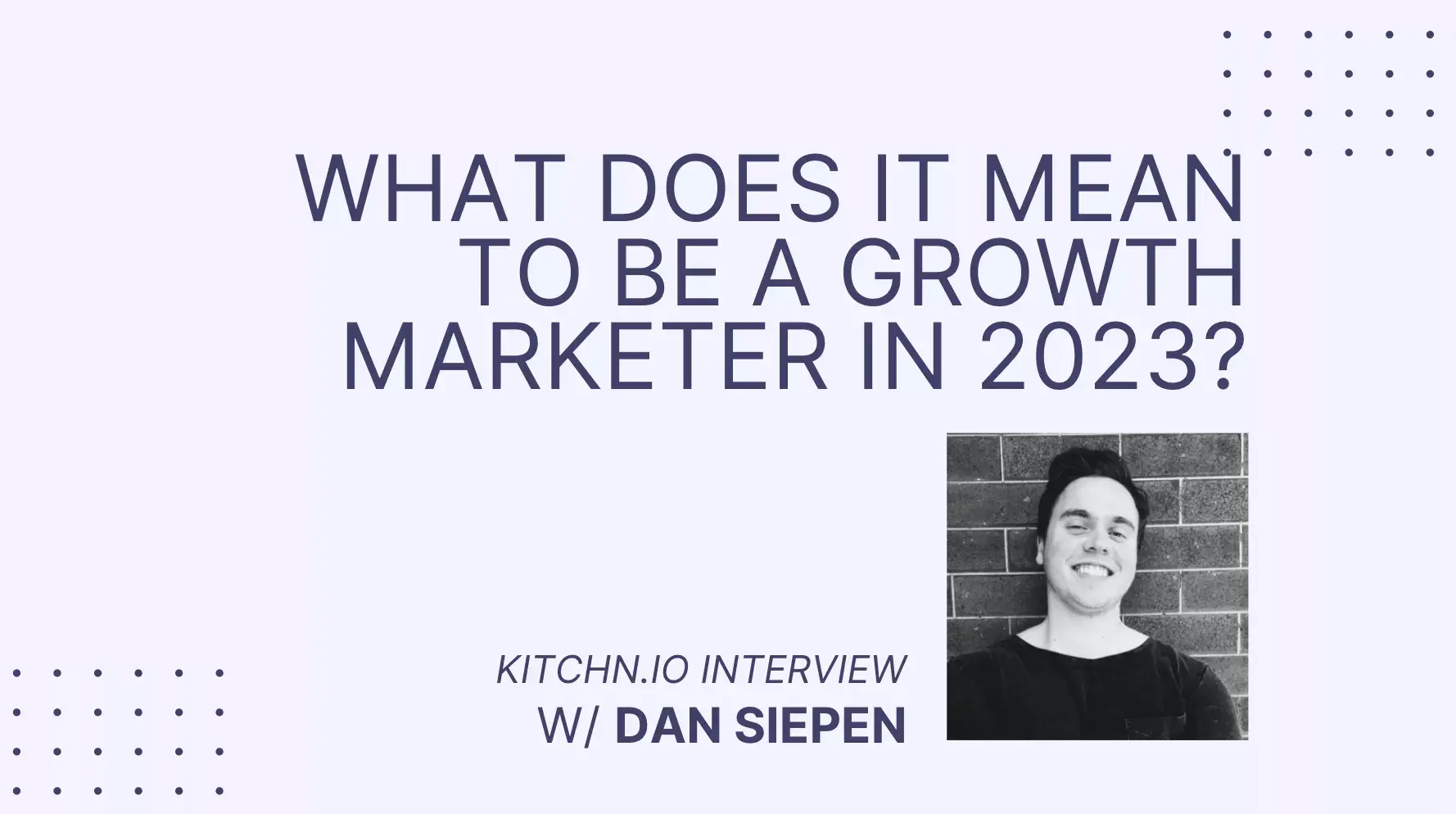Expert Opinions
What does it mean to be a growth marketing manager in 2023?
As the role of a growth marketing manager constantly evolves, the requirements to succeed in this role change too. We've asked Dan Siepen, a Sydney-based growth marketer, what are, in his opinion, the most important growth marketing skills.
As technology and marketing strategies continue to evolve, so does the role of a growth marketing manager. In 2023, the role of a growth marketer has become increasingly complex and multifaceted. It requires a combination of technical skills, creative thinking, and business acumen to drive successful growth for a company.
We've asked Dan Siepen, a Sydney-based growth marketer, what are, in his opinion, the most important growth marketing skills. Dan has founded Australia's largest growth hacker community and regularly hosts events in Sydney. He also has two great blogs, in which he shares e-commerce growth marketing ideas, and SaaS Tool Stack, to help you facilitate your marketing efforts!

It’s fun doing marketing: an e-commerce growth marketing blog by Dan Siepen
This blog post will explore what it means to be a growth marketing manager in 2023 and the skills, responsibilities, and challenges of the role. Since Kitchn.io focuses on paid social channels, we mostly talk about growth marketers primarily working with Facebook, Tiktok, and Snapchat ads!
What are the most important skills for a growth marketer in 2023?
Dan: There are quite a few skills that are important for growth marketers, and the area of paid social requires a few key skills. In my personal opinion, there are three critical skills that growth marketers need to be on top of in order to not only stay on top of paid social trends but also excel and perform. Here are three critical skills:
Analytics Skills
Strong analytical skills with an experimentation framework in place. Scaling ad accounts all comes down to continuous testing and knowing when to kill/scale campaigns.
Deep understanding of customer journeys
Deep understanding of customer journeys - the strongest growth marketers know the customer journey deeply of the business they’re working with (or for). Every single stage requires targeted ads for when visitors/customers are at a particular stage in the journey. Long gone are the days of simply setting up wide remarketing audiences with no personalisation and expecting things to perform consistently.
Strong creative skills
Creative is everything in the world of paid social.
How are the responsibilities and priorities of paid social growth marketers changing over time?
Dan: There have been a lot of fluctuations in the responsibilities and priorities for performance growth marketers over the years. To be honest, there are always new challenges every year, particularly with big platform updates.
We’ve had Covid, iOS 14 updates, more competition (regardless of industry/category), CPMs increasing (and becoming more expensive)... you name it. And now, the ad platforms are focused on becoming easier to set up and manage. Yes, I mean easier and more accessible for advertisers (particularly those who haven’t advertised before) to start creating and running ads. Again, more advertisers equal rising costs. So now, it’s about being smart with every dollar invested by brands and marketers.
In terms of responsibilities and skills, these are the particular focuses that have become more important than ever.
Creative Strategy
Creative strategy + an awesome creative workflow - you need to not only have a strong creative framework, but you also need to have a great workflow when it comes to creative output.
Experimentation
You need to have the ability to move fast and constantly test new ads, ad sets, audience combinations, creative angles (etc.) - everything. This is what it takes in order to find some winning combinations which you can back for scaling.
Automation
The world of AI has shaken up a lot of things across the marketing sphere, and when it comes to paid social, I think it’s been absolutely awesome. Now in a world where you need to adapt fast in an increasingly competitive landscape, adopting a platform like Kitchn to speed up creation, management and scaling is an advantage for brands and marketers.
This is just my opinion from my own personal experience.
What does a typical day of paid social growth marketers look like, in your opinion? What daily tasks do they spend most of their time on?
Dan: Every paid social marketer is different in terms of how they go about their daily routines, but for me personally, as a performance/growth marketer, these are the main daily tasks I do.
Daily bid and budget checks
Check daily budgets/results (within ads manager + automation platforms) - not every marketer checks their account(s) performance daily, but I’m just one of those people who just loves to be on top of things. I love the attention to detail, and just by checking daily, I always get learnings and key takeaways for optimisations. Automation tools like Kitchn are awesome for checking data faster which is really useful to save time.
Overview of results
Quick overview of results attributed to ads - Whilst you can see the detailed insights related to ads specifically in the ads manager/automation tool, it’s then just as important to cross-check performance across other channels and how ads have played a role. For example, you may have ads that have resulted in new email newsletter subscribers, which is great. However, how many of those subscribers have turned into paying customers in ‘X’ period (e.g. 7 days)? This is just a simple example, as there are many other channels and campaigns that may be happening concurrently. Again, it’s not about going crazy with data and insights daily, but it is good to have a checklist of items to quickly check to ensure things are heading in the right direction.
Review experimentation framework
The best growth marketers that I’ve had as colleagues over the years are really good with experimentation frameworks and tracking experiments. I check what A/B split tests are currently running at the time, and then I add more A/B split-test ideas/experiments based off the data I see within the automation tool/ads platform. At any one time, I usually have 30+ experiments/tests ready to go.
Review brief design/videography workflow
And create new briefs as required. This incorporates checking updates and communications between contractors - designers, videographers, copywriters, as well as influencers/UGC video content creators.
Provide context around data and performance to the team
I wouldn’t say communication daily is required when chatting with clients and internal teams, but I do each day ensure I write notes on observations, data trends, and what the ‘next steps’ are based on performance data (whether good or bad). I always have talking points prepared when it comes to reporting what’s happening across paid media for the business/startup.
What is your opinion on paid social automation? Do you think businesses should look into it when scaling ad operations?
Dan: My opinion is overwhelmingly positive when it comes to paid social automation platforms like Kitchn. Scaling ad accounts has become more challenging, and I believe it’s only going to become more challenging as costs and competition increase. In fact, some of the best performance marketers I know are using automation tools for scaling creative, audience creation and budget controls which are focused on key ROAS targets/KPIs.
So the answer for me is pretty simple, and I’ve been recommending platforms like Kitchn for other marketers who truly are looking for scale. I still can’t believe what I used to have to do over the years when it came to managing and scaling accounts (haha). I’m actually really glad ad automation platforms like Kitchn exist, as it does save a lot of time when I have to focus on other channels (which also need to perform).
Next Read
Growth Marketing
Hire growth marketer vs. invest in tech: how to scale your ad operations in 2023
Paid Social Blueprints
Facebook automated rules: how to manage them like real pros
Paid Social Blueprints


